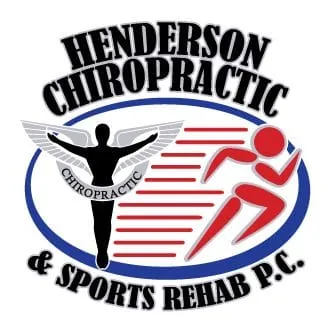6thingstoknowaboutmusclerelaxants
Muscle relaxers are most often prescribed soon after a bout of back or neck pain begins, and are used for a short time to ease painful muscle spasms, or cramps. These medications also help ease muscle spasms after surgery. What to Expect If you haven't taken a muscle relaxer before—or if it's been a while—here's a quick rundown on how to use them: Stagger the schedule. Your doctor may prescribe both pain medication and a muscle relaxant to help you get a handle on your pain. Don't take them both at exactly the same time, though. (That could allow your pain to get out of control by the time your next dose is due.) You'll be more comfortable if you take the muscle relaxant an hour or two earlier or later than the pain medication. This method ensures that some medication is always in your system to ease the pain. Be ready for drowsiness. Some muscle relaxants cause more sleepiness than others, but it doesn't hurt to be prepared for potential drowsiness. Don't drive until you've had a chance to see how a muscle relaxer affects you. If you don't need to take muscle relaxers around the clock, try taking them in the early evening. That way, the drowsiness may distract you from the pain, letting you get some needed rest. Avoid them if you're pregnant. Muscle relaxants aren't ordinarily advised if you're pregnant or breastfeeding, but some are more risky than others. To be on the safe side, tell your doctor if you're breastfeeding, pregnant, or planning to become pregnant to learn your best options for pain relief. Be aware of side effects. Serious side effects to look out for include breathing problems, fainting, confusion, nausea, blurred vision, constipation, and urinary difficulties. Keep your doctor informed on any major side effects. You may be able to switch to another muscle relaxant with fewer side effects. Watch out for abuse. Muscle relaxants can be addictive, so it's ideal to use them for the shortest possible time and keep them away from others. Because these medications depress the central nervous system, breathing is affected and an overdose can be fatal. Combining a muscle relaxant with alcohol or another medication that also has a sedating effect is especially dangerous. Discontinue them gradually. If you've been taking a muscle relaxant for an extended period, don't just stop taking it one day. That could set you up for some thoroughly unpleasant withdrawal symptoms, such as nausea, vomiting, and trouble sleeping. Save yourself some trouble and ask your doctor for a schedule to taper off the medication. It's good to keep in mind that muscle relaxants are just one part of pain control. To keep back pain from returning, physical therapy, ergonomic changes at work, and other strategies may be needed.
Muscle relaxers are most often prescribed soon after a bout of back or neck pain begins, and are used for a short time to ease painful muscle spasms, or cramps. These medications also help ease muscle spasms after surgery. What to Expect If you haven't taken a muscle relaxer before—or if it's been a while—here's a quick rundown on how to use them: Stagger the schedule. Your doctor may prescribe both pain medication and a muscle relaxant to help you get a handle on your pain. Don't take them both at exactly the same time, though. (That could allow your pain to get out of control by the time your next dose is due.) You'll be more comfortable if you take the muscle relaxant an hour or two earlier or later than the pain medication. This method ensures that some medication is always in your system to ease the pain. Be ready for drowsiness. Some muscle relaxants cause more sleepiness than others, but it doesn't hurt to be prepared for potential drowsiness. Don't drive until you've had a chance to see how a muscle relaxer affects you. If you don't need to take muscle relaxers around the clock, try taking them in the early evening. That way, the drowsiness may distract you from the pain, letting you get some needed rest. Avoid them if you're pregnant. Muscle relaxants aren't ordinarily advised if you're pregnant or breastfeeding, but some are more risky than others. To be on the safe side, tell your doctor if you're breastfeeding, pregnant, or planning to become pregnant to learn your best options for pain relief. Be aware of side effects. Serious side effects to look out for include breathing problems, fainting, confusion, nausea, blurred vision, constipation, and urinary difficulties. Keep your doctor informed on any major side effects. You may be able to switch to another muscle relaxant with fewer side effects. Watch out for abuse. Muscle relaxants can be addictive, so it's ideal to use them for the shortest possible time and keep them away from others. Because these medications depress the central nervous system, breathing is affected and an overdose can be fatal. Combining a muscle relaxant with alcohol or another medication that also has a sedating effect is especially dangerous. Discontinue them gradually. If you've been taking a muscle relaxant for an extended period, don't just stop taking it one day. That could set you up for some thoroughly unpleasant withdrawal symptoms, such as nausea, vomiting, and trouble sleeping. Save yourself some trouble and ask your doctor for a schedule to taper off the medication. It's good to keep in mind that muscle relaxants are just one part of pain control. To keep back pain from returning, physical therapy, ergonomic changes at work, and other strategies may be needed.
Contact Us Today
We look forward to hearing from you
Locations
Find us on the map
Office Hours
Monday:
8:00 am-12:00 pm
2:00 pm-5:00 pm
Tuesday:
8:00 am-12:00 pm
2:00 pm-5:00 pm
Wednesday:
8:00 am-12:00 pm
2:00 pm-5:00 pm
Thursday:
8:00 am-12:00 pm
2:00 pm-5:00 pm
Friday:
By Appointment
Athletic Day
Saturday:
Closed
Closed
Sunday:
Closed
Closed
